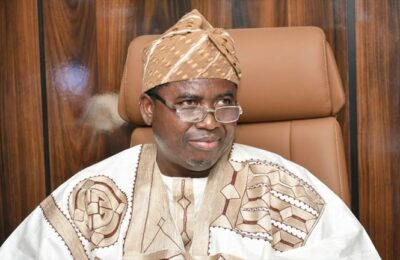In a matter of weeks, the people of Kogi State will make an important decision about who to elect as their governor for the next four years. The Independent National Electoral Commission, (INEC) has fixed the Kogi governorship election for November 21. Two weeks later on December 5, it will be the turn of Bayelsa to go to the polls. In both cases, the people will be faced with choices they have been faced with in the past as both races are between the incumbent governors and ex- governors.
The frontline candidates in Kogi are the incumbent governor- Capt Idris Wada and ex-Governor Abubakar Audu while in Bayelsa- the race is between ex- Governor Timipre Sylva and incumbent Seriake Dickson. In both cases, the electorate have the rare opportunity of making an informed choice based on verifiable scorecards of the candidates stint in office.
In Kogi, Audu’s handlers are mindful of that fact and have had a head start of campaigning based on what they describe as ‘unparalleled achievements’ during his six years stint as governor between 1991-1993 and 1999-2003. Many people have also assigned to Prince Audu the title of the Father of Modern Kogi. The achievements they list out include the establishment of the Kogi State University, some housing estates in Lokoja, Kogi State Polytechnic, NTA Kogi, Confluence Beach Hotels and Graphics newspapers. They go further to ascribe establishment of Dangote Cement company, Obajana to the efforts of Audu.
Audu’s opponents however are quick to point out that the ‘achievements’ were more of cosmetic achievements. One case they always refer to is the conversion of buildings of a World Bank agricultural project to university that could not offer one accredited course and renaming same after himself. It took later PDP administrations for the university to reclaim the name Kogi State University and the category A accreditation it enjoys today. They go further to assert that even Graphics newspapers that Audu claims to have established was just a newspaper house in name as all their publications were printed by Tribune publishing house. It was the Wada administration that established a printing press for the newspaper in Lokoja thus making Graphic a true newspaper house. They also wonder how Audu could lay claim to the establishment of Obajana Cement-when the state had no public private partnership law in place until the advent of the Wada administration. They go further to challenge Audu to mention the direct stake he negotiated for the state in Obajana cement- a fully private institution.
Wada’s handlers are quick to state that in a little over three years, Wada has built a foundation for a truly modern Kogi despite the fact that he has had access to less than half of the resources at the disposal of Audu during his time. This is a fact that even Audu has attested to at different fora! The achievements they point to are an unprecedented 200% leap in Internally generated revenue; great improvement in peace and security as opposed to the climate of thuggery and violence that reigned during Audu’s time. They also point to the establishment of a modern transport plan that includes government subsidized transport system- the first of its kind in the nation, establishment of a modern transport mega terminal and the establishment of inter and intracity transport land and water transport schemes. Other achievements are the attraction of foreign investments like Allo Cement Company, Cargill USA and Nigeria-Korea Vocational Centre via an aggressive drive to attract investments. They posit that if Wada given six years that Audu had, Kogi would be massively transformed as all the ongoing projects like 250-bed teaching hospital, the phase II Lokoja project which is being heralded with the 16km Otokiti Ganaja Bypass Road, the Lokoja water reticulation, the 11-Storey Kogi House etc would have been completed.
Other political analysts are of the opinion that beyond performance, Wada And Audu are going to compete on the basis of character. Audu’s supporters acknowledge their client’s weakness on this front but are quick to point that his arrogant tendencies are far surpassed by his penchant for what they term sterling performance. A lot of people still recall that during Audu’s two previous adventures in power, he ruled like an emperor and saw the state as an extension of his fiefdom. As governor, lesser human beings including his commissioners and other top functionaries of government cringed in his presence. They dared not sit whenever the emperor was on the throne. People were expected to crawl before him and obey him without objection. Salaries and allowances were regularly withheld without explanation. Civil servants were routinely laid off without regard to extant rules.
Has the former governor learnt his lessons? Not likely. Happenings at the recent Eid prayer where muslim faithfuls had to delay their prayer for over five hours to wait for him. Two weeks ago, while returning from a trip abroad, a large number of supporters were mobilized to Jamaata bridge where they waited several hours for Audu. The long wait was said to have taken a toll on the health of an aged man who collapsed and was rushed to a near by hospital for revival. Recently, a reporter was reprimanded for having the effrontery to seat on the dining table in Audu’s Ogbonicha country home.
In Audu’s time, people with genuine grievances could not air them freely without reprimand from the powers that be then. The former banker also carries a deep baggage from his earlier sojourn in Lugard House during which he was alleged to have helped himself from the common till. He is still standing trial over an alleged stealing of about N12 billion from the state revenue.
Given the fact that Kogites have experience of both Wada and Audu regimes, Will Kogites hand Audu the red card as they did on three previous occasions? The answer to this question and to whether Kogites prefer to return to the hero worshipping days of Audu or will prefer to continue with the all inclusive governance style of the incumbent will be handed down on Nov 21.




